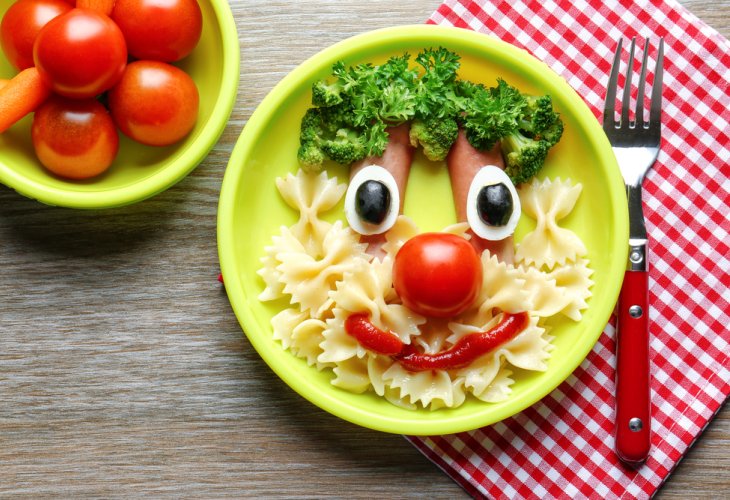Why Do Kids Need "Kids' Meals"?
That's what children want because that's what you've accustomed them to. But would you also feed them junk books?
 (Photo: Shutterstock)
(Photo: Shutterstock)"Every evening when I come home, I prepare children's food for the kids," my patient tells me. "So it turns out that in the house, there's mainly children's food, and that's what I eat."
"Children's food?!", I ask. "I've heard of food for dogs or parrots. But for children?!"
It appears that in many homes, children are considered a human mutation that can only digest junk food. It baffles me why when you eat quality grilled meat, you give your loved ones hot dogs; why you go to good restaurants, but sit at fast-food joints with your kids; and why a birthday party is celebrated in the fashion of a junkyard...
That's what the children want because that's what you've accustomed them to. But would you also feed them junk books or junk movies? Of course not! Even if they demanded and threatened that if you didn't give it to them, they would never read another book.
Here's a solution to this childish problem:
* It all starts at the top - The top is the head of the family, or more clearly – the parents. Setting an example is the name of the game. Be nice, and your kids will be nice. Eat healthily, and your kids will eat healthily. Maintain the right to remain silent. You don't need to say what's allowed to eat and what's not. Simply eat healthily, and you'll be surprised to see how your kids imitate you.
* Time Tunnel – Go back to your childhood. Try to remember how many sweets you ate. Give your kids exactly that amount. You'll be surprised to see how many sweets you've saved them from.
* Domestic and Foreign Policy – "If we give the kids sweets at home, they won't crave them at friends' houses" – this is a strong claim that justifies intensive "poisoning" of children inside the home. And I say, to prevent sweets from being "stolen waters," a foreign and domestic policy should be adopted.
What does this mean? Don't bring forbidden foods into the house, so that only nutritious food is available. Outside, however, allow them to eat almost anything they want. When you visit friends with your kids, offer them the treats, even if they're unhealthy. If they ask, pour them a drink that your home's walls have never seen. Let them enjoy freely, but under no circumstances should you acquiesce and say: "There's nothing to be done... need to give in...". Instead, understand that by allowing them to eat the cake adorned with food coloring (*l'chaim*), you are actually doing the best for them, as only this way will you achieve cooperation and prevent them from secretly eating. You live among your people, so you need to go with what's happening outside to strengthen and maintain the principles at home.
Nonetheless, don't forget what's mentioned in the first section: Setting an example is the name of the game. The kids will notice that you're not eating the unhealthy treats. This will enter their subconscious especially if you don't mention it. (Remember, the right to remain silent). Eventually, you'll be surprised to find that they imitate you, and when your adult daughter sits in a café, she will naturally order a salad, even though she could certainly order anything else (since the café follows foreign policy).
Want to know more? Purchase the series of lessons "Growing up Healthy" taught by the naturopath Sarah Bar Asher on the Jewish Campus of Hidabroot.
Sarah Bar Asher is a naturopath and lecturer on nutrition and the food industry. Barasher@zahav.net.il

